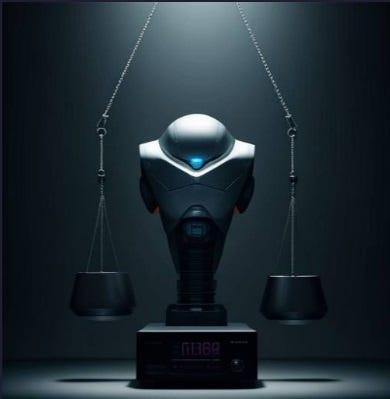Law Unbound - No Going Back
How historic embedded and recent forces are transforming law practice.
(This item originally from February 2023)
I saw a recent post by someone talking about how, 'Here we go, another round of terminations, trust me I have been through this' which left me skeptical.
Something new big has changed in the law since 2020 to now. The world we inhabit today is not the same world as 2019.
As an attorney now into my third decade of practice, its hard not to see that things have not only changed, but have really-really changed fundamentally. And some are saying, and I agree, that the law is forever changed.
Look at just three trendlines that grew out of our common experience and fallout from the pandemic years:
Nothing can overstate the impact of forcing the world to lever onto a system immediate-yet-disintermediated, by mandate. Our work, schools, banking, religion, restaurant, public services, courts, social, meetings and most communications have all tilted past the 50-50 tipping point into a virtual realm.
People are sick and afraid of sickness. People are habituated to the casualness of dress, travel, and time. People are captured by the time efficiency of tasks for the rest of our lives.
But make no mistake, the 'default virtual' paradigm has meant that lawyers selling on high rise gleaming offices, resplendent conferencing and meeting facilities, Brooks Brothers suits and Hermes briefcases....all costing a lot of money....have lost some professional and functional power.
But it isn't just the trappings.
I have seen some of the most veteran senior lawyers, trained by decades how to inflect every small gesture and occupy a court space physically, come up against a younger lawyer with greater facility over Zoom and therefore instantly greater influence with the ruling judge.
Uncertainty about the economy abounds. And if this makes any sense the economy is both “bigger” and more “intwined.” But this time, given the prior trajectory of economies and also companies to unite forces globally, one has the sense that a "pull back" (to put it euphemistically), and the "recovery" will be on another category entirely.
For the law this touches directly on how larger firms finance themselves and their undertakings. Debt is both a salutory liberator and a cruel enslaver, and can change face sometimes instantly.
The law has seen the "technology bubble" of the early 2000s which laid waste to the most esteemed firms. The "credit crisis" or "real estate crash" of 2008 led to a wave of consolidations, like firms huddling together under a rainy awning.
If a bubble were to burst today, many predict that even the largest global firms -- overlevered from the 2020-21 deficiencies, overburdened by hard payables -- could experience large, public, global 'Lehman style' crashes.
What would this mean to the clients for whom so much is currently in play?
Along with virtualization, contenders for refashioning how clients meet lawyers, how lawyers serve clients, and increasingly often how clients serve themselves are arising and rising.
Some technologies like Zoom saw lawyers and clients adopt their relationship around it, imperatively for survival. Others, like dominant #AI seem poised to enter and dominate no matter what lawyer or client say.
And it is hard not to argue for a fast solution over your iPhone (for lawyer or client) instead of driving across town, parking, going up elevator, talking and listening to 'the spiel', then contending over scope of work and controlling billable hours. Except, then, those billable hours...
Lawyers are finding their patterns of work habit (down to granular gestures, such as a new keystroke required by yet another new "platform") altered. Time capture, a necessary evil for law firms - what Harvard Business School once called 'The Most Successful Profit Center of History' can required more time than is valuable to capture. Add new the court processes, Zoomdepos etc. etc., novel client preferences and technologies ('my docs are on Notion'), technology change is newly altering the practice of law in fundamental and exponential ways.
Much of this has to due with the historic and growing daily "arbitrage of interests" between lawyer and client -- lawyer to maximize revenue, client to minimize. Clients and law firms can and will see this dynamic coming more to the surface and in sharper relief for the forces above and more besides. The way we have understood law practice has changed in great respects to something we don't yet know.
What will all of this mean for the future of law practice?
We see glimpses daily IRT as breaking news in our businesses, and clients in their relationships with lawyers and how, and why, and what they access from the law business, or do not. Lawyers see it too with trepidation and hope. Clients definitely want more for less.
From here the many ways the law business develops remains today a mystery.
But shape and develop the law will. On the wholesale, there is no going back.







